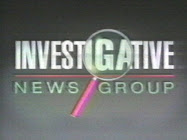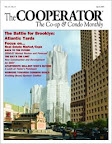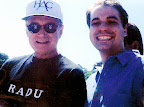Students in the Conflict Resolution Program led by George Anthony and Lindy Crescitelli are preparing to be presenters at The United Nations on Martin Luther King Jr.'s Birthday.
The impetus to start this clearly successful program perhaps began in 1993 when a concern about race relations led the New York City's Board of Education to take advantage of Columbia University's training in conflict resolution and mediation strategies. Having a background in psychology, Anthony was sent in 1993 to participate in the first training. He felt like his life's work found him.
"We expect kids to make the right decisions to cope with conflict, but kids need to learn the choices they have," said Anthony. The program he designed with fellow teacher Lindy Crescitelli combines a powerful mix of being able to speak up for yourself to clarify a situation, learning about the choices you have when confronted with conflict, including seeking walking away as an option that does not make you any less strong. Hot-button issues like rumors, homophobia, and name-calling are addressed. Ultimately the students are trained to help others find peaceful solutions too. They learn in the most effective way -- by doing.
Their belief in choosing nonviolence comes from the conviction of having experienced its power. "I used to be temperamental; got into fights, had a rap sheet, knew all the deans," said Jerlisa Jacobs. "Now I still know them, but in a different way. This program gives you responsibility; leads you to know you have three choices when you are confronted with a conflict; isolation, confrontation, or resolution. Conflict Resolution lets you vent and solve your problem."
Being treated poorly because of someone's prejudice frustrates everyone. It can be an eye-opening experience when it comes to people with whom you might assume you have nothing in common. "When people look at me they see a little white girl, cheerleader. They don;t see that I am also Puerto Rican and Jewish. It's harder to make assumptions when you get to know someone," said Danielle Stern.
"We all have problems, not just fights, relationships, family. This program teaches us how to cope. It opens your eyes to how bias can lead to hatred and name-calling. It has helped me think about the consequences before I act," said Jubin George.
"Everyone loves a skill that works," said Crescitelli. "Dr. King said that we get peace through understanding and the foundation is love. But we need tools that allow us to practice communicating that love through understanding." One of those tools is listening, he said. "A lot of the time each side feels the other is not listening. If you want another person to believe you are listening, sometimes you have to say back to them what you understood them to say." Then you can come to some agreement about what each needs. "When young people experience understanding through listening, they grow in their confidence and ability to make a difference."







































